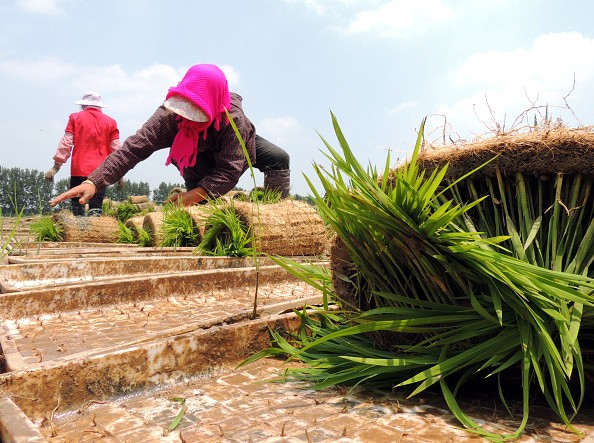According to a document by the Central Committee of the Communist Party of China and the State Council, China will deepen supply-side structural reform in agriculture in order to cultivate new development engines from the sector.
Structural issues mainly on the supply side are the major problem that faces China's agricultural sector. This policy document calls for the improvement of structure in the agriculture industry, the promotion of "green" production, the extension of the sector's industrial and value chain, the consolidation of shared rural development and the enhancement of rural reforms.
This is the 14th year in a row that the "Number 1 central document" has been devoted to farmers, agriculture and rural areas. It is the first policy statement released by the central authorities in a year.
The document states that national grain security must be guaranteed when carrying forward supply-side structural reform for the sector. This reform in the agricultural sector would be a long and challenging process, which demands a well-handled relationship between the government, the market and the interests of all stakeholders.
The document also indicated that the gist of supply-side reform in agriculture is to increase the output of high-grade products based on green and innovative production. This should be done while maintaining a zero increase in the usage of pesticides/fertilizers, and controlling water usage vigorously in the sector.
A group of alliances and innovation centers will be created for better farm produce. Outstanding research will be enhanced as well.
The reform also aims to refine the standardized systems and quality supervision for farm production and soil pollution. This will encourage agricultural businesses to gain international certifications.
China will also promote the cross-border operation of agricultural enterprises, the export of competitive farm produce, and the establishment of global leaders in the sector.
Separately, China will encourage migrant workers to return to rural areas and start their own businesses. This will be done while stepping up the training for professional farmers and professional agricultural managers.
Authorities will also offer a favorable taxation policy for startup businesses in rural areas. They will also support financing, social insurance and land use.


